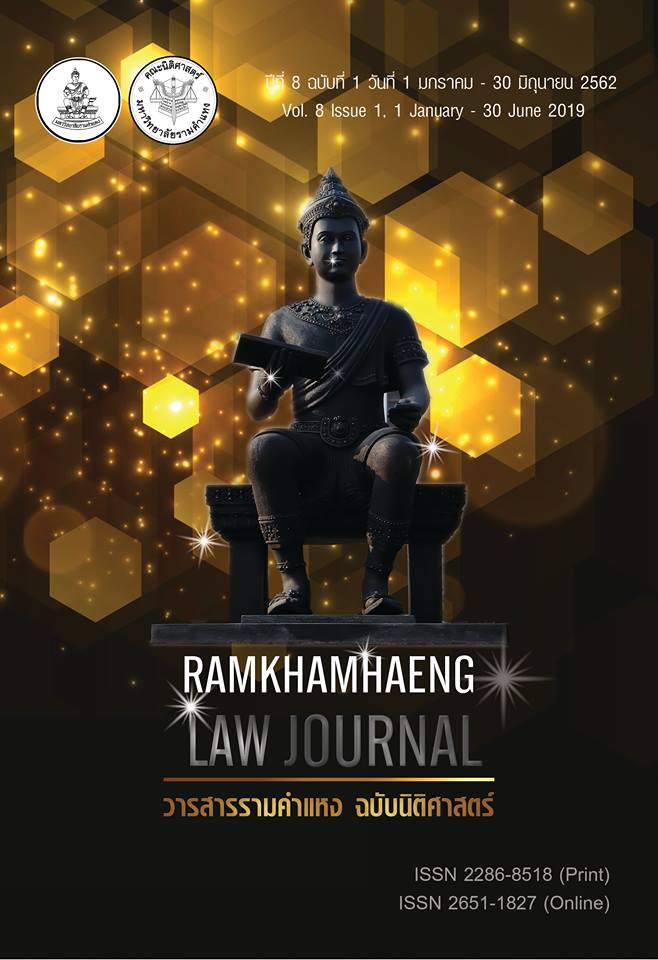Bitcoin Transactions: The New Frontier of Income Tax Evasion in Thailand
Main Article Content
Abstract
Bitcoin is this intangible cyberspace currency or money use in the purchasing and selling of goods and services. Thus far, governments and monetary regulators of many countries have defined Bitcoin as either a kind of currency or money or an asset. However, given that Bitcoin transactions take place solely in cyberspace with: each seller and purchaser identify by a string of numbers; and a blockchain or a cyberspace ledger keeping track of transactions, it is difficult for the tax authority to account for the identity of the income receiver and the amount of income derived from the transaction.
Tax authorities of different countries have attempted, in numerous ways, to grapple with the kind of income from Bitcoin transactions. However, these attempts may not help to properly tax the amount of income generated by each Bitcoin transaction in cyberspace.
This paper aims to: (1) Highlight the impacts of Bitcoin technology on a person’s desire to generate more income, make more profit and accordingly renders the responsibility to pay income tax; (2) Survey the meanings of Bitcoin as defined by the tax authorities of various countries and their attempts to tax income derived from Bitcoin transactions; and (3) Examine the adequacy of specific Thai income tax law in taxing income derived from transactions using Bitcoins, this includes considering the income tax provisions in a Royal Decree or Por Ror Gor Amending the Revenue Code (No.19) 2018.

